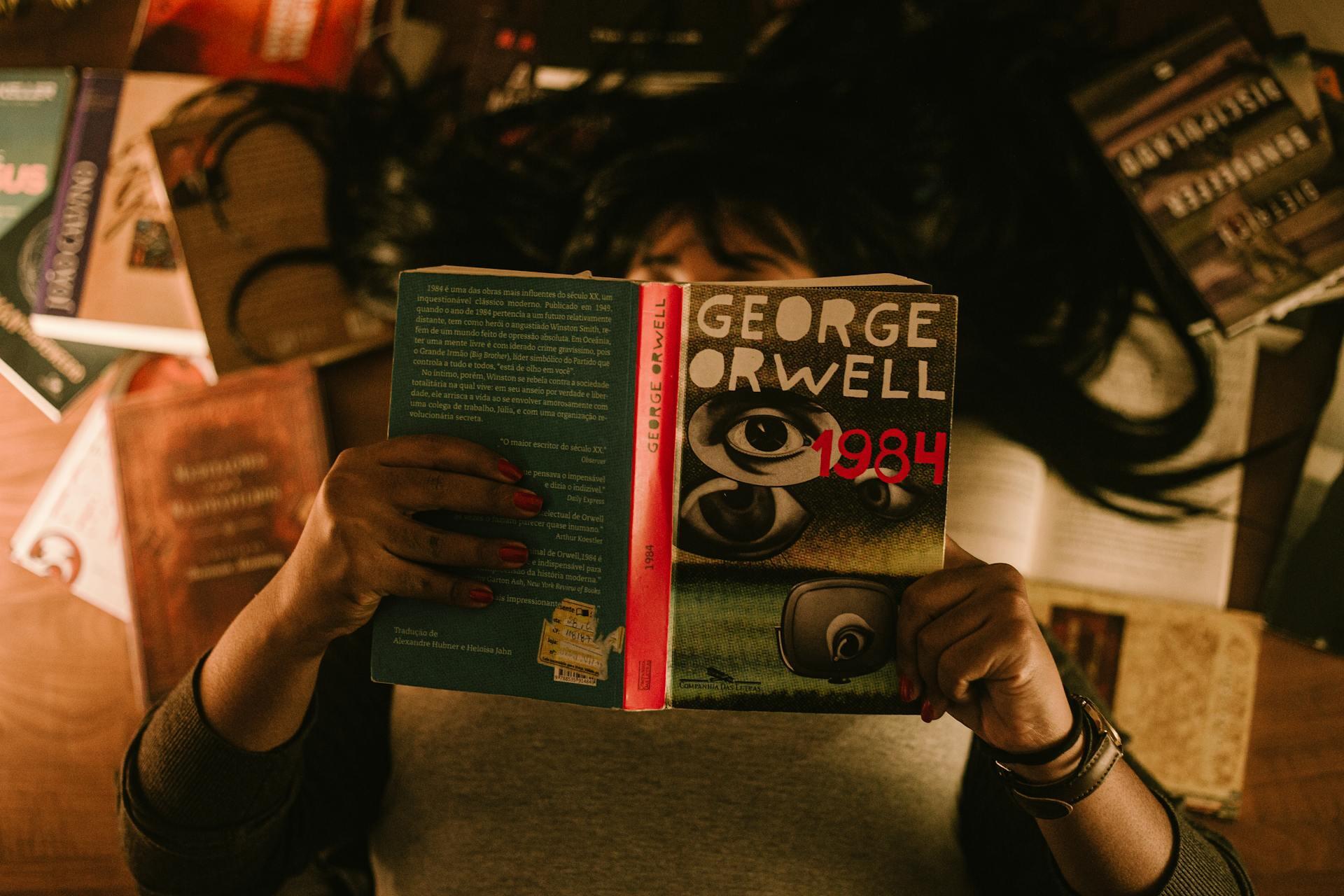George Orwell is best known for his dystopian novels, with 1984 being one of the most distinguished works. Under the rule of the Party, Big Brother is the all-seeing figurehead used to eliminate privacy. In this world, freedom of thought is forbidden, and acting in unapproved ways is punishable by death or torture. Nineteen Eighty-Four explores what happens when governments have too much control over not just policy, but society as well. In this 1984 book analysis, we’ll cover the most important topics, themes, and messages found in this futuristic novel.

Historical Context
Orwell wrote the book Nineteen Eighty-Four in the aftermath of World War II. He had seen multiple examples of governments abusing power to control their citizens in different ways:
- Fascism in Germany and Italy led to war and other atrocities
- Stalin’s repressive regime in the Soviet Union
- Orwell fought in the Spanish Civil War against the fascists (and discovered that it seemed like the rebelling communist forces wanted to replace the fascists with an authoritarian government)
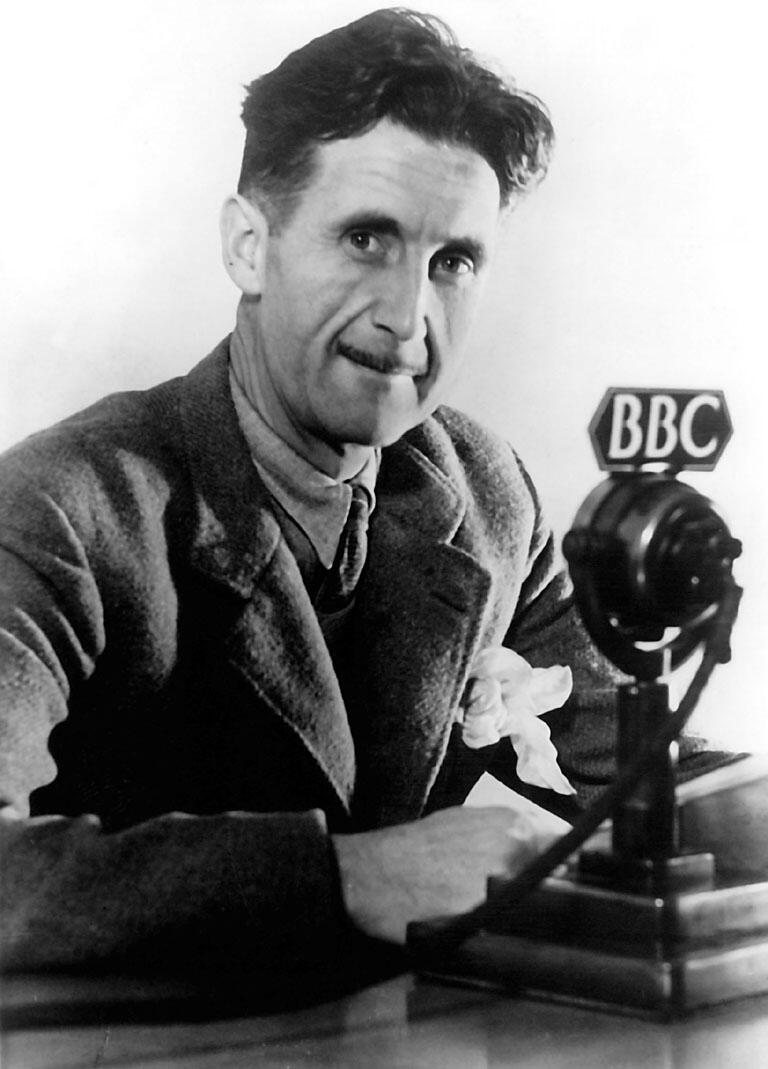
George Orwell began writing 1984 in 1947.
The Cold War was beginning, and fears of global conflict and state control were rising.
His goal was not just to criticize specific regimes of the recent past (and present), but to warn of the universal dangers of unchecked political power and blind obedience.
He wanted people to understand that the seizure of power only works when enough people allow it to happen.
Orwell based all the aspects found in Oceania (the country in which 1984 takes place) on things he had already seen happen in the world.
Impact on Literature and Culture
When 1984 was published in 1949, it quickly became one of the most influential works of the twentieth century. Its ideas (such as “Big Brother,” “thoughtcrime,” and “Newspeak”) became part of the common vernacular in real life. The book became the epitome of a dystopian novel, and almost every subsequent dystopian story gets compared to it.
George Orwell’s ideas have helped raise awareness and give people a way to talk about subjects like privacy, truth, and government surveillance and corruption. His ideas continue to be referenced in discussions about freedom, censorship, the power of information, and the power of the common person.
The book's continued relevance makes it one of the most-taught books in schools.
Overview of 1984
Nineteen Eighty-Four can be enjoyed simply as a dystopian book or used as a way to learn and understand more about international politics and history.
It has so many references to real historical events that, unless you’re already really good at history, you might not notice. You might need to research more about history to understand what Orwell was implying completely. But, even without knowing all the allusions to real life, the messages are pretty clear.
Setting and Context
The story takes place in an invented country called Oceania, one of three superstates remaining in the world. Specifically, the setting is Great Britain, which has been renamed to Airstrip One, in London.
The three world powers are constantly at war with one another, which means the people of London are constantly on edge, waiting for an attack (just like in WWII and then the Cold War), and have to live under a strict ration system.
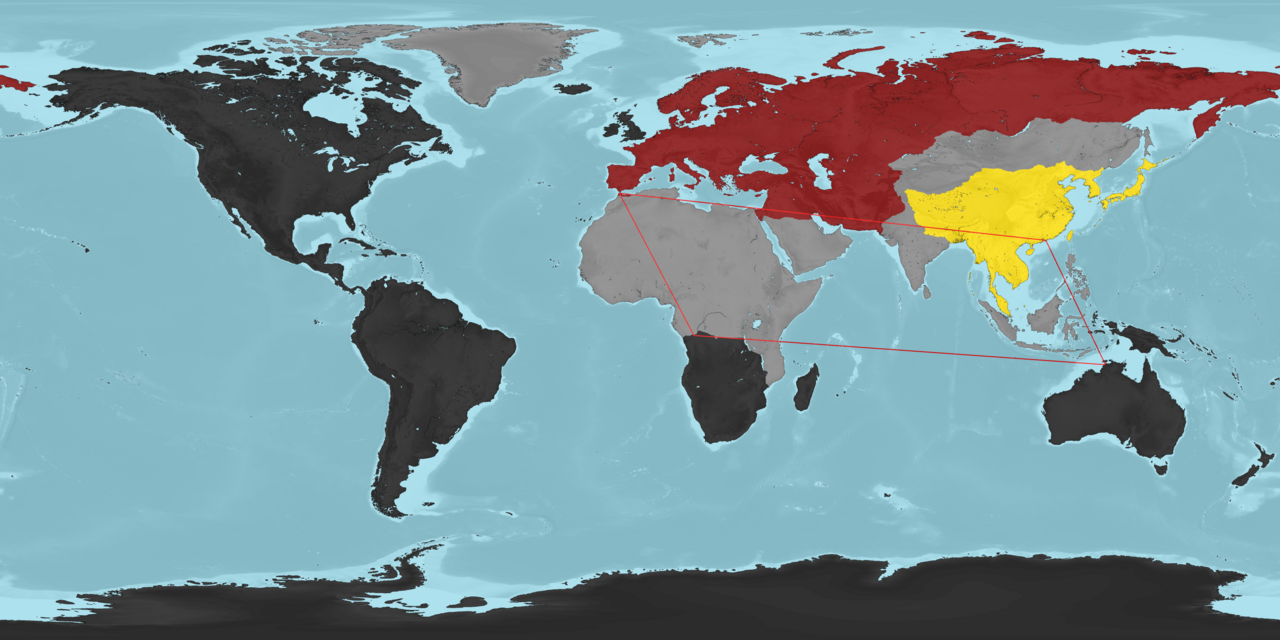
In Oceania, the Ingsoc (English Socialist) party controls everything. They have complete control over every single person’s entire life through a complex series of human and technological surveillance and informants. We get the sense that every structure in society is carefully planned by the government. Even the slums where the proles live, which appear to be rather unmonitored, are actually constructed purposefully that way.
We believe the year is 1984, since that’s what the main character, Winston, figures.
The truth is that the government constantly changes history to suit a specific narrative at any given time, which means that the real year is not known.
What is certain is that it takes place post-WWII in a reality where the government has seized control in the post-war chaos and reconstruction (or, perhaps, in a reality where the war never ended).
Winston has some childhood memories of a time before the Party took over completely.
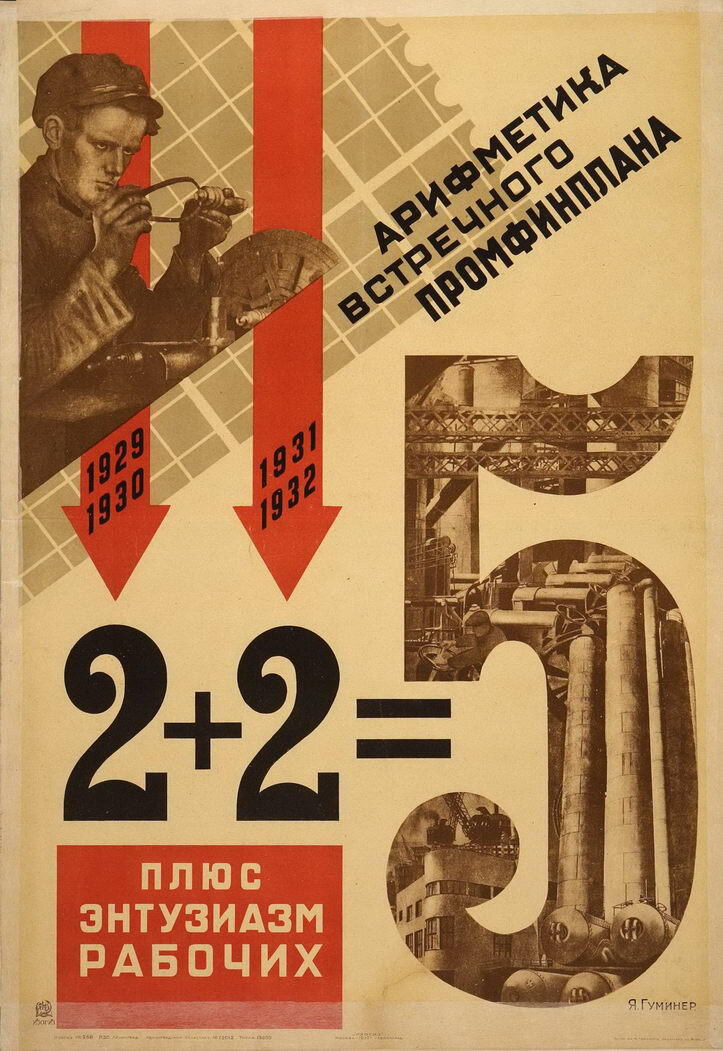
There are three main social classes:
- The Inner Party: the government workers who hold actual power
- The Outer Party: the government workers who have the illusion of power (Winston belongs to this class)
- The Proles: The poor, working-class majority, which is kept distracted, uninformed, and quelled
Every building displays posters of Big Brother’s face with the caption: “BIG BROTHER IS WATCHING YOU.” Individual freedom, privacy, and truth no longer exist. History is rewritten daily to fit the Party’s narrative, and even thoughts or memories can be considered crimes. People are not allowed to do anything even remotely out of line, like have fun or talk too much to one another. They are kept from forming meaningful connections with others, effectively making each person exist in an individual prison, even though they are relatively physically unrestrained.
Main Plot Summary
First, take a quick look at the overview of the main plot points in Nineteen Eighty-Four. The novel is separated into three sections, called books. Each book contains several chapters. The structure creates a clear beginning, middle, and end. In summary, each chapter of each book progresses the story at an important point.
April 4, 1984
The trap is set
Winston notices O'Brien at the Two Minute Hate and believes he's actually a rebel. Winston starts writing in his diary.
April 18, 1984
Julia slips Winston the note
The note says, "I love you."
May 2, 1984
Winston and Julia meet
They go to the Golden Country and sleep together there
May-August, 1984
Winston and Julia rent a room
They keep a room above Mr. Carrington's shop for their affair
August 1984
Winston and Julia are arrested
Turned in to the Thought Police by Mr. Carrington, they are brought to the Ministry of Love
March 1985
Winston is released
After months of torture and "re-education," Winston is finally released. He meets with Julia one last time and has no affection for her anymore, only for Big Brother.
Winston Smith works at the Ministry of Truth, where his job is to alter historical records so that the Party is always right. He secretly despises the Party and dreams of rebellion, but because of the authoritarian society he lives in, he has to pretend to support the government and keep all his thoughts secret. There is no completely safe place to have privacy, nor is there a safe person to talk to.
His inner conflict begins when he buys a blank notebook, which is dangerous and illegal to do, and starts writing down his thoughts against Big Brother.
Winston’s life changes when he meets Julia, a young woman who shares his hatred of the regime. Where Winston is extremely careful about appearing controlled (aside from buying a journal), Julia is more bold, directly proposing they begin a secret (illegal) relationship.
Both give in to the basic human need of connection and trust, trying to find happiness. They rent a small room above a shop in the poor part of town where they feel safe, away from the eyes of the Party.

Their sense of freedom, however, is an illusion. The shopkeeper, Mr. Charrington, turns out to be a member of the Thought Police. He turns Winston and Julia in when they are in possession of a banned piece of rebellious literature. The literature, The Theory and Practice of Oligarchical Collectivism, is an anti-Party book by Emmanuel Goldstein. It was given to the couple by O’Brien, an Inner Party employee. O’Brien is a double agent who pretends to be part of The Brotherhood to lure potential rebels into confessing their thoughts by accepting the book. He effectively entrapped them to be apprehended by the Thought Police.
Winston and Julia are arrested and taken to the Ministry of Love, where political prisoners are tortured until they betray themselves and each other.
There, O’Brien subjects Winston to brutal psychological torture, forcing him to abandon his beliefs or face mutilation. Winston’s spirit is broken from the deceit, physical and psychological torture, the realization that everything in the world is a lie, and knowledge there is no escape.
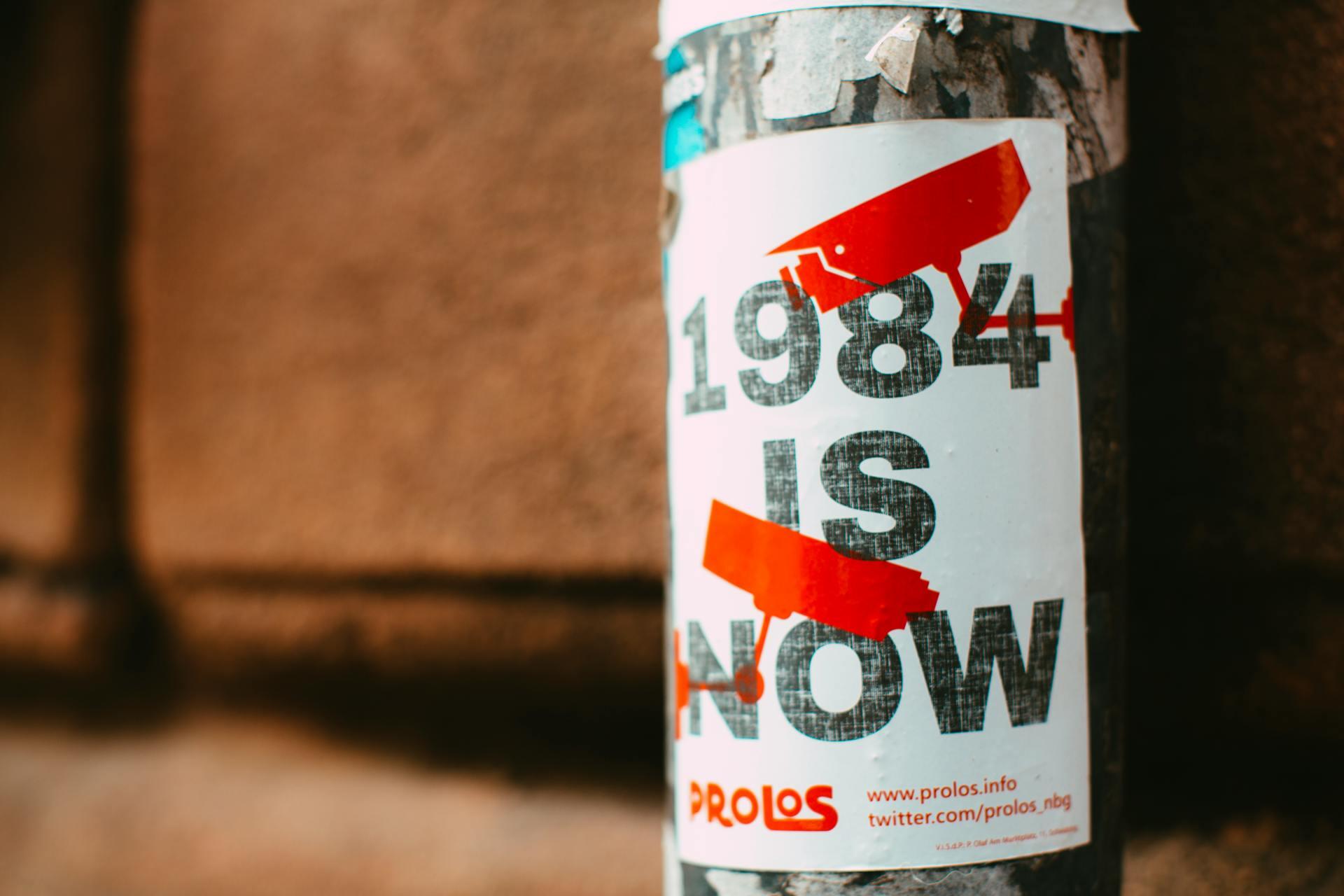
In the final act, Winston is taken to Room 101, where prisoners face their worst fears. For Winston, that fear is rats. Faced with the unbearable terror of being eaten alive by rats, he betrays Julia, begging for her to be punished instead of him.
By the end, Winston is released back into society, but he is broken and docile, the way the Party wants its citizens to be. The Party has completely reshaped his mind. He accepts everything the Party says and genuinely loves Big Brother.
Orwell closes the book with a harrowing message: the human spirit, after being crushed by absolute power, can be remade to worship its oppressor.
For more dystopian, authoritarian, allegorical satire from George Orwell, check out Animal Farm.
If you stop reading at the end of the narrative, you miss the twist ending of 1984. The glossary at the back of the book appears to be written in the past tense by a future historian, and it’s written in plain English as we know it, not Newspeak. This means that Orwell imagined that, at some point, the Party was overthrown and overcome. The details are not known, but he was giving the reader a glimmer of hope.

1984 Character Analysis
The characters in Nineteen Eighty-Four represent different types of people in society and how they might react under an authoritarian rule. It offers readers different perspectives (and messages) to consider. They are also used to drive home the political messages Orwell was trying to convey.
Winston Smith
Winston is the main character from whose perspective we see. He offers us a way to understand the psychology of at least some of the people living in that world, and has reasonable thoughts and reactions by our own standards. He works for the Party, understanding that it uses unethical practices to manipulate the populace.
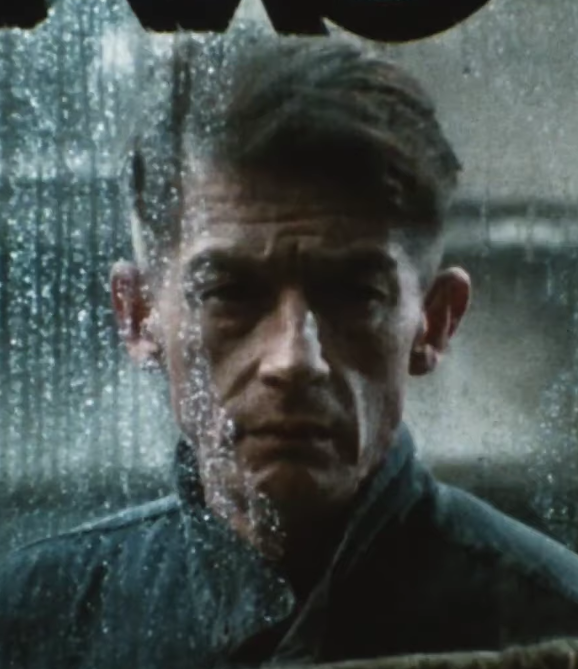
His intelligence makes him unable just to accept things as they are without internal struggle.
It also gives us insight into questioning the how and why of the government, which is imperative for Orwell’s explanations of government control.
Winston’s fatalistic nature means that he knew he was doomed the moment he bought the notebook, but he was able to convince himself that it wasn’t a problem.
He represents the desire for large-scale change for humanitarian reasons; the Party crushes everything that means to be human, and it shouldn’t be that way. He has a hard time wrapping his head around the reasons for the Party's twisted actions.
I don’t imagine that we can alter anything in our own lifetime. But one can imagine little knots of resistance springing up here and there—small groups of people banding themselves together, and gradually growing, and even leaving a few records behind, so that the next generations can carry on where we leave off.
Winston
His fatalism also meant that he was more willing to take risks, because he knew he could be taken away by the Party at any time, for any reason, so he might as well do something worth punishment. He represents resistance.
Winston’s ultimate defeat reflects Orwell’s warning: when a system controls thought itself, rebellion may become impossible. Orwell drives in the point that we cannot let the government have too much control, or else there may be no escape.
Julia
Julia is practical, rebellious, intelligent, and far less idealistic than Winston. She approaches Winston for an affair because she had a sense that he also hated the Party. Where Winston wants to rebel for a moral imperative, Julia wants to seek pleasure wherever she can find it to enrich her own life and be secretly disobedient.
This sounds selfish, but it’s a reasonable way to respond to the society they live in.
She knows she can’t change the world, but she can try to have a life with more happiness than the government wants her to have.
To cover her tracks, she is extra-enthusiastic in pro-government activities, which means she contributes to the oppression of citizens more than required.
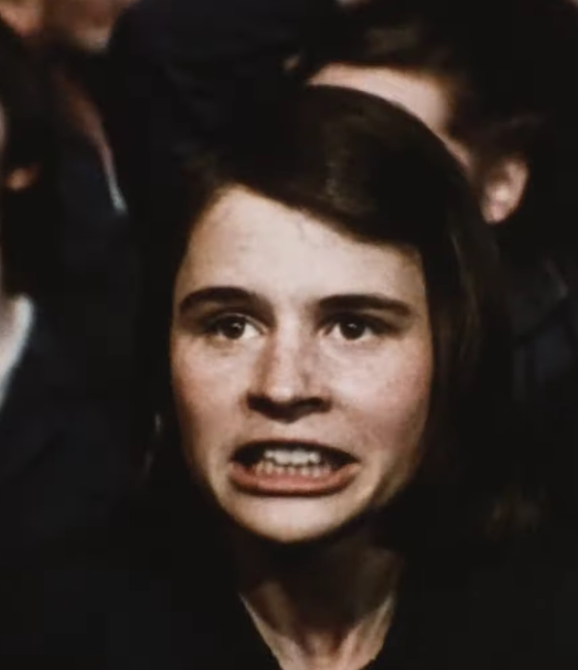
She seems to completely understand the Party’s motivations for controlling things like sex, comprehending that it’s because it can cause interpersonal loyalty rather than loyalty only to the Party. It also means the people have less energy and fanaticism to spend on Party loyalty. These insights and others she tells to Winston, who hadn’t considered the possibility before.
Her relationship with Winston represents a brief human connection in a dehumanized world. It also shows that people acting on an individual level can both rebel and support oppressive systems.
Julia is an interesting character to compare and contrast with Daisy from The Great Gatsby.
I was a troop-leader in the Spies. I do voluntary work three evenings a week for the Junior Anti-Sex League. Hours and hours I’ve spent pasting their bloody rot all over London. I always carry one end of a banner in the processions. I always look cheerful and I never shirk anything. Always yell with the crowd, that’s what I say. It’s the only way to be safe.
Julia
O’Brien
O’Brien is an Inner Party official who initially appears to share Winston’s opposition to the government regime. In reality, he is a manipulator who entraps Winston by pretending to invite him to join the Brotherhood and giving him an anti-government book.
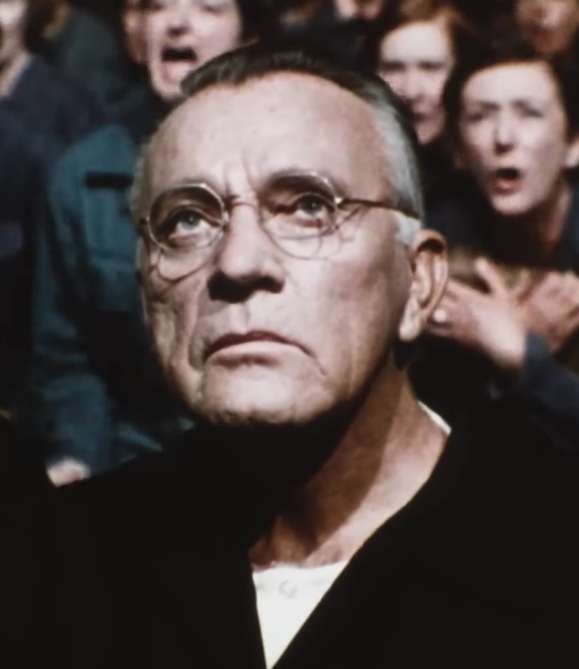
His trickery throws Winston’s (and our) entire understanding of the society into doubt.
We are left not knowing exactly how powerful the Party is, what the truth is, and what is a lie.
All we know is that it is extremely powerful and is more pervasive in everyday life than one might think possible.
O’Brien demonstrates how power corrupts the human capacity for empathy and truth.
Whether O’Brien is operating because he believes in the Party, because he is just doing what he’s told so he can live comfortably, or because he has also been "re-educated" doesn’t matter. The result is the same: he tricks and tortures people to maintain the authoritarian power structure.
Never again will you be capable of love, or friendship, or joy of living, or laughter, or curiosity, or courage, or integrity. You will be hollow. We shall squeeze you empty, and then we shall fill you with ourselves.
O'Brien
Big Brother
Big Brother is the symbolic leader of the Party. His face appears everywhere, but his existence may be fictional. He represents the idea of inescapable surveillance. Citizens are constantly under cameras, telescreens, and listening devices, never mind all the equipment and spies they aren’t aware of.
Big Brother gives the illusion of unity: everyone is under his eye together. But each person in the society is effectively isolated. Big Brother is an embodiment of the system that demands total loyalty and an erasure of individuality and humanity.
It’s likely that Big Brother does not actually exist, and is either a fabricated person or just a spokesperson.
The Beastie from Lord of the Flies is another false figure that inspires fear.
You hate him. Good. Then the time has come for you to take the last step. You must love Big Brother. It is not enough to obey him: you must love him.
O'Brien to Winston
Mr. Charrington
At first, Mr. Charrington appears to be an elderly man in the prole district (where the working class people live) who sympathizes with Winston. He knows about London’s past, before the Party, and tells Winston a little about it. He sells Winston the illegal diary and a paperweight and rents out the room to Winston and Julia, where they can have their affair. He seems to be aligned with the rebellious part of society.
But we find out that he completely fabricated the whole act. He is part of the Thought Police and acts as a spy in the community to catch people just like Winston and Julia.
He represents the Party’s ability to control its citizens’ realities and also serves to make us question everything we know about the Party and the world.
Another character who questions everything is Hamlet, from Hamlet.
The limited understanding we get from Winston’s story means everything we think we know about Oceania is questionable. Julia and O’Brien touch on some of these points, such as the likely possibility that the bombs dropped on the city from time to time are actually from the Party, not a rival state. Is there even a war going on, or is it made up to keep people afraid and justify limiting resources? How much surveillance power does the Party really have? Are the proles really under less surveillance? How much of daily life is manufactured to make people think their reality exists in a certain way? Was the Party really watching Winston for seven years, or did they make that up to make him question reality and destroy his spirit?
Emmanuel Goldstein
Emmanuel Goldstein is said to be a former Party member who was sentenced to death for being a traitor, but escaped and formed the Brotherhood rebellion. However, it’s likely that Goldstein does not exist and is entirely fabricated by the Party.
This serves two purposes:
First, the Party uses the threat of attack from the Brotherhood as a way to keep people afraid and as a justification for harsh laws and actions against citizens.
Second, it serves as a point of interest for anyone with rebellious ideas and draws them in so they reveal themselves to the Thought Police.
This is how Winston gets caught by O’Brien.
Themes and Analysis
There are many themes and messages present in Orwell’s novel. To get the full idea, be sure to read up on history, especially about WWI and fascism in Nazi Germany and Mussolini’s Italy, the USSR, and China’s communist history. But don’t stop there! Investigate messages given by non-fascist governments to their citizens and see if you can identify any similar themes.
Totalitarianism and Oppression
The central theme of Nineteen Eighty-Four is totalitarian control. The Party’s rule extends beyond laws and politics into every aspect of life. Citizens’ thoughts, emotions, and even memories are all subject to the Party’s control. Orwell shows how fear and constant surveillance destroy individuality and create a submissive population.
Through the Ministries, George Orwell presents a world where language and policy are being actively changed to the opposite of their traditional meanings. The Ministry of Truth spreads lies, the Ministry of Love enforces torture, the Ministry of Peace maintains war, and the Ministry of Plenty withholds resources. This distortion of reality illustrates how propaganda can become more powerful than pure force.
If they could make me stop loving you—that would be the real betrayal. They can’t do that…They can make you say anything—anything—but they can’t make you believe it. They can’t get inside you.
Julia
It’s clear that the Party had already been implementing measures gradually for a few years to create the society we see in the novel. The fact that Winston was in the process of learning Doublespeak and didn’t already know it means that the Party was implementing long-term plans to oppress the people even more. Building this foundation helps ensure that the people will police each other, making it easier for the Party to remain in control.
Manipulation of Language and Thought
Orwell’s creation of Newspeak is one of the novel’s most powerful ideas. By removing words from the language, the Party limits the range of thought. If there are no words for “freedom” or “rebellion,” those ideas become harder to imagine, desire, or communicate.
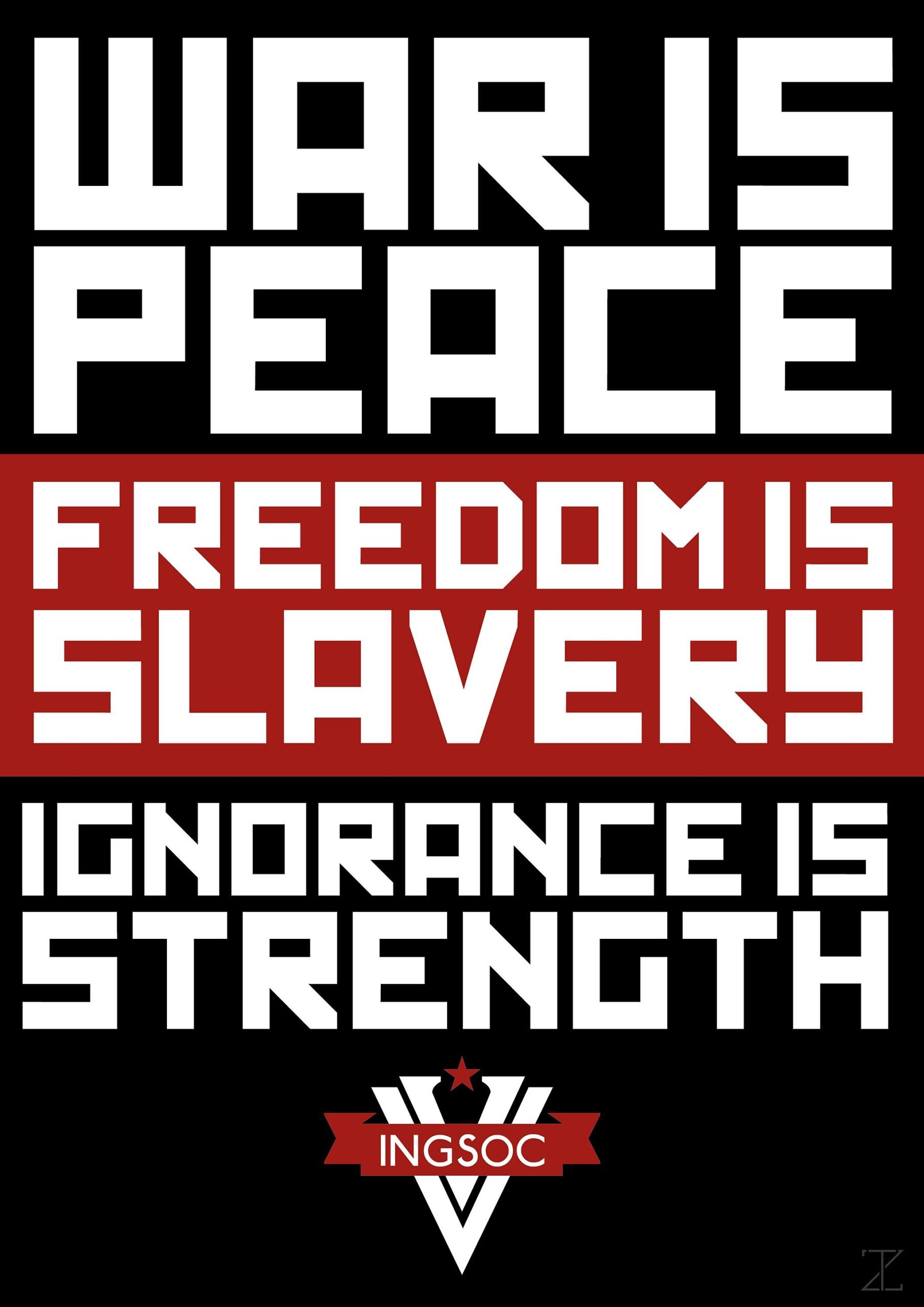
This concept, known as linguistic determinism, shows how language shapes consciousness.
The Party’s slogan, “Who controls the past controls the future. Who controls the present controls the past,” promotes the same principle.
By rewriting history and redefining the truth as they see fit, the Party gains the power to shape not only what people believe, but what they can even conceive as possible.
Winston’s job is to change written history. He knows what he writes is incorrect, but there’s nothing he can do about it, and it will become accepted as truth when it’s widely circulated.
Ray Bradbury's Fahrenheit 451 is another exploration in authoritarian dystopia especially about propaganda and censorship.
| Word | Definition |
|---|---|
| Big Brother | The person, department, or technlology (it's not known exactly) that surveils every person at all times |
| Blackwhite | To say, think, and believe the blatant lies the Party is telling you (E.g. black is white, "2+2=5") |
| Crimethink | Thoughts that go against what the Party wants you to think |
| Doublethink | Ignoring the existing meaning of an idea and accepting the new meaning as dictated by the government. E.g. "Freedom is slavery." |
| Goodthink | Thoughts that are aligned with what the government wants |
| Ministry of Love | The ministry actually uses extreme violence and fear to keep law and order, including torture and "re-educating" (brainwashing) |
| Ministry of Peace | The ministry claims to keep the state safe, but actually they make sure there is perpetual way (or the appearance of one) |
| Ministry of Plenty | The ministry claims to ensure everyone gets enough food and resources, but it actually works to give people just enough that they won't starve en masse |
| Ministry of Truth | The ministry actually manufactures propaganda, including altering historical records; the truth is what the government tells you it is |
| Newspeak | The new way of speaking (in English, but with certain words omitted and with invented words) the Ingsoc government mandates |
| Plusgood / Doubleplusgood | A dumbed-down way to convey very good / excellent |
| Plusungood / Doubleplusungood | A dumbed-down way to convey very bad / terrible |
| Proles | Proletariat: The lowest social class in ancient Rome. In Marxist theory, refers to the collective working-class people. The poorest people who appear disregarded by the government |
| The Brotherhood | The supposed underground resistance movement working against the Party |
| Thought Police | Those who look out for thoughtcrime, often spies |
| Thoughtcrime | Thinking of something unsanctioned; this is grounds for arrest |
| Unperson | Someone whose existance has been erased by the government |
Individualism vs. Collectivism
The system has worked hard to erase individuality as well as interpersonal connections, making it impossible for anyone to trust one another, therefore stymying any collaborative uprising.
Love, friendship, and family are viewed as threats because they can create connections between individuals outside of Party control. The Party wants every citizen to trust only Big Brother. Children are enrolled in the government Junior Spy program (a direct comparison to Hitler Youth). Each child is effectively a government agent who will immediately report their parents, or anyone else, who displays any “badthought” behavior, effectively destroying the idea of family.
I tell you, Winston, that reality is not external. Reality exists in the human mind, and nowhere else. Not in the individual mind, which can make mistakes, and in any case soon perishes: only in the mind of the Party, which is collective and immortal. Whatever the Party holds to be the truth, is truth. It is impossible to see reality except by looking through the eyes of the Party.
O'Brien
Winston struggles as one person who yearns for positive collective change. To pursue that, he has to reclaim his individualism first, dragging it back from the authoritarian collectivism pushed by the Party, which demands everyone forfeit their individuality for the “good” of the whole. This forced collectivism is, of course, not actually beneficial for the people.
Julia does what she can to reclaim her individuality, so in that way, she is more developed than Winston. However, she has no interest in pursuing a collective freedom from the Party, because she knows she would not succeed.
Mob mentality is also a theme in To Kill a Mockingbird.
1984 Quiz
Ready to ace your English literature homework, tests, and quizzes? Make sure you understand the most essential ideas in George Orwell’s Nineteen Eighty-Four! Here are some of the most important questions about the book that you need to know.
Summarize with AI:

